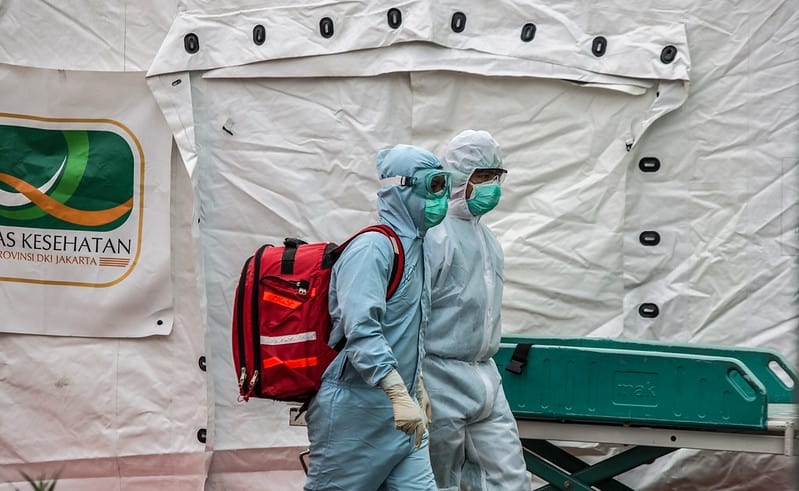
Last updated on May 6th, 2021 at 10:37 am
The Minister of Health Terawan Agus Putranto issued a Decree of the Minister of Health (KMK) of the Republic of Indonesia Number HK.01.07/MENKES/413/2020 concerning Guidelines for the Prevention and Control of Covid-19. He signed this new regulation on Monday, July 13.
One of the points in this rule is that rapid tests are no longer recommended for diagnosing people infected with Covid-19.
“The use of rapid tests is not used for diagnostics,” Terawan said.
According to this new regulation, in conditions with limited RT-PCR (reverse transcription-polymerase chain reaction) inspection capacity, rapid tests can only be used for tracking in specific populations and special situations.
“In conditions with limited RT-PCR inspection capacity, Rapid tests can be used for screening specific populations and special situations. Such as travel agents (including the arrival of Indonesian Migrant Workers, especially in the State Cross-border Post (PLBDN) region,” explained Terawan.
“As well as for strengthening contact tracing such as in prisons, nursing homes, rehabilitation homes, boarding schools, boarding schools, and in vulnerable groups.”
From the beginning, many health experts called the rapid test not effective at detecting Covid-19. However, the government insisted on maintaining the test. The Covid-19 Handling Acceleration Task Force even set the results of the non-reactive rapid test as one of the travel conditions. People may not travel outside the city, especially by air, if they do not include this document.
The Ministry of Transportation spoke of the latest decision Minister of Health Terawan about using rapid tests is no longer recommended to diagnose people infected with Covid-19.
A spokesperson for the Ministry of Transportation, Adita Irawati, said that her party was still referring to the rules of the Covid-19 Handling Acceleration Task Force Team. This means that public and private passengers still have to include the results of the rapid test and PCR swab tests.
Adita explained, as long as the Task Force Team had not changed the rules, the Ministry of Transportation would not change the provisions. This means that adjustments to regulations related to travel passengers will refer to the Task Force Team’s regulations.
Meanwhile President Director of PT Garuda Indonesia (Persero) Tbk Irfan Sebuahutra said the company was still coordinating the new rules released by the Ministry of Health with regulators. “We are still studying and discussing with related parties,” he said.
World Health Organization (WHO) recommends the use of rapid tests for epidemiological or other research purposes. While for diagnostic purposes, the Indonesian government is now following the WHO, which recommends molecular examinations for all patients suspected of being infected with Covid-19. The recommended method is the molecular detection method/NAAT (Nucleic Acid Amplification Test) such as RT-PCR examination.
An epidemiologist from Griffith University, Dicky Budiman said, the rapid test requirements for travel should be removed. “This includes tests for students entering college,” Dicky said, Tuesday, July 14.
Likewise, with an epidemiologist from the Faculty of Public Health, University of Indonesia Pandu Rionowho stressed that there was no need for a rapid test to check or tracing the transmission of Covid-19 to the community. He called the Covid-19 test with the polymerase chain reaction (PCR) method or swab test more effective.
“An ambiguous statement about rapid antibody testing, which can be used for screening. Whereas the WHO explicitly did not recommend, since last April,” Pandu said on his Twitter account, Wednesday (7/15).
“Rapid tests are no longer allowed for screening, or mass tests also for prerequisites for travel, school, and others. It is not effective than PCR,” Pandu said as quoted by Media Indonesia a few days ago.
The use of rapid tests has raised polemics because of their low accuracy. Moreover, rapid test rates are also expensive so that it is burdening people who have been squashed due to the deteriorating economic impact of the virus.





















